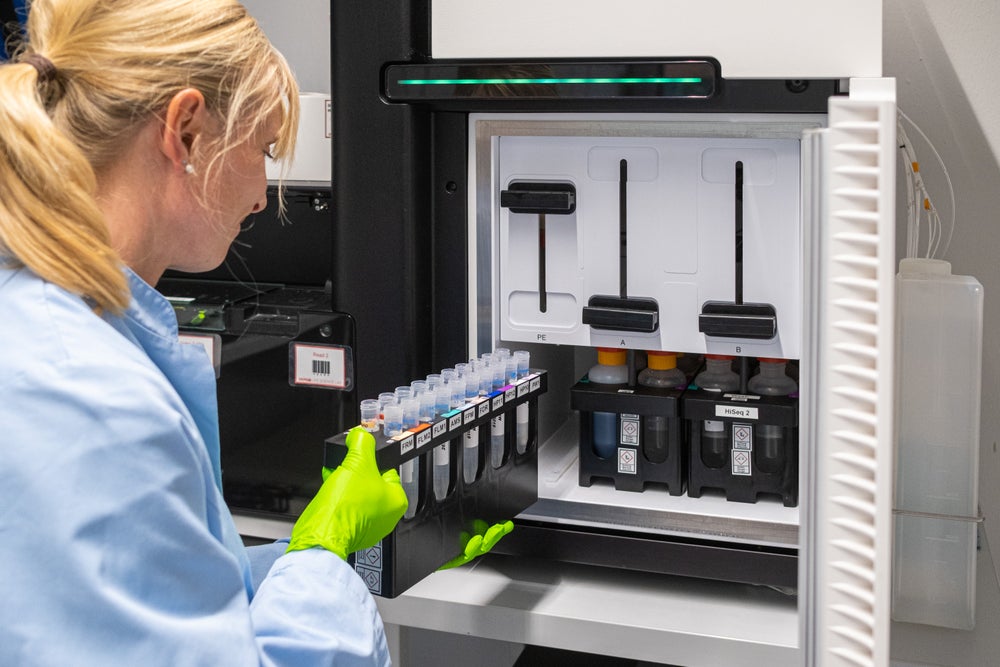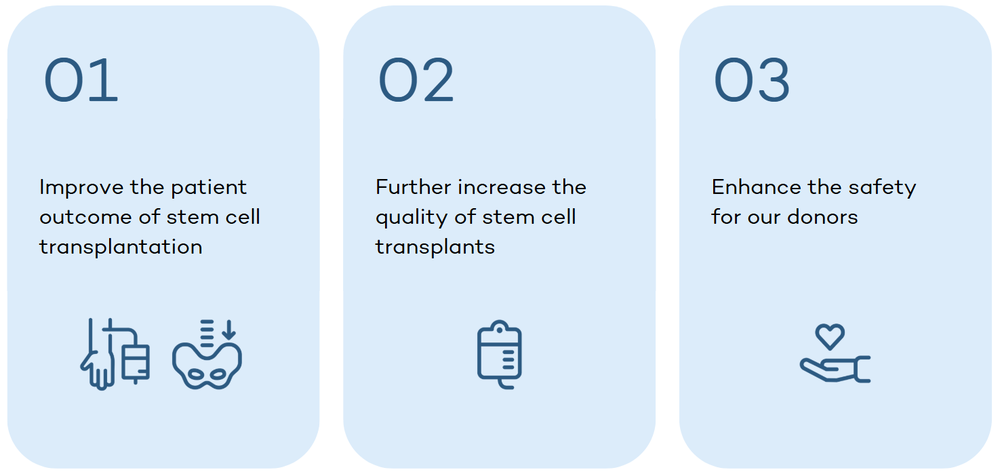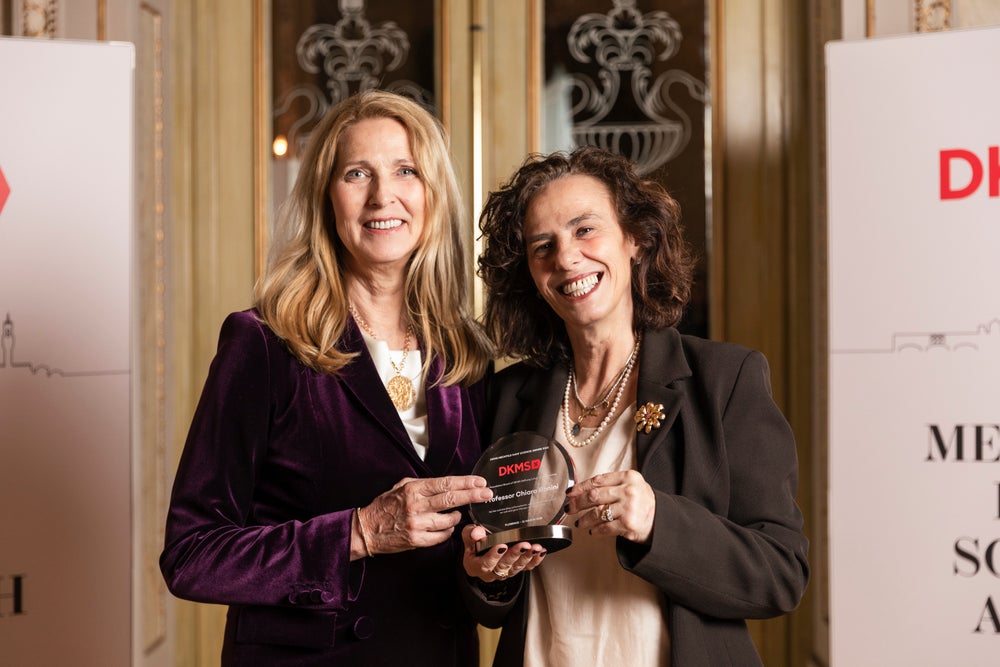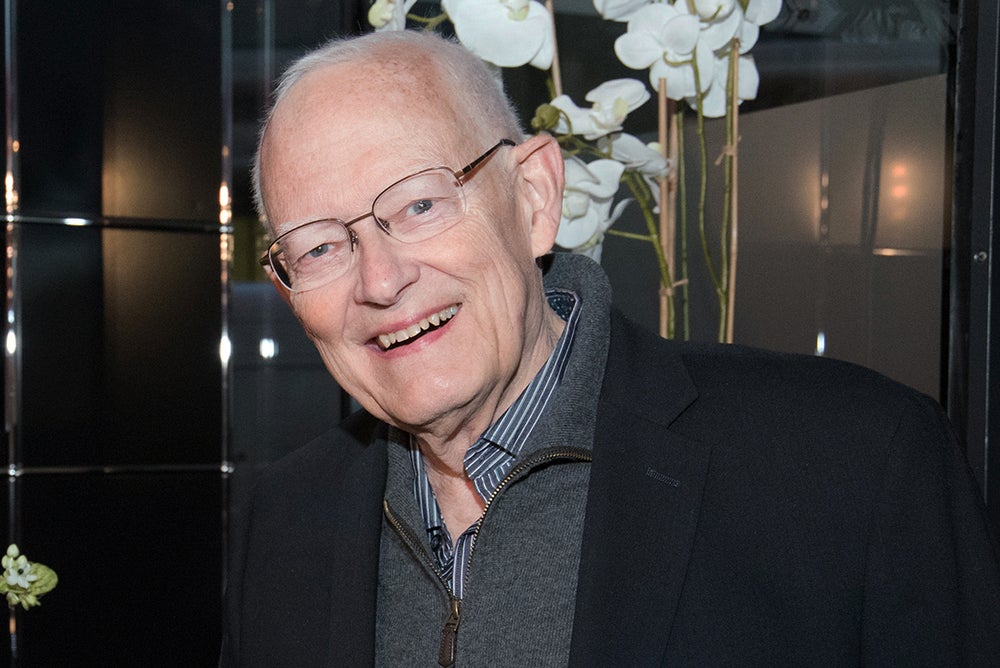Skip to main contentSkip to footer![A female employee of the Life Science Lab, with brown hair in a bun, wearing a light blue lab coat, and green protective gloves, is working in the laboratory. She is holding a yellow stack of sample containers and placing them into a machine. The background is blurred A female employee of the Life Science Lab, with brown hair in a bun, wearing a light blue lab coat, and green protective gloves, is working in the laboratory. She is holding a yellow stack of sample containers and placing them into a machine. The background is blurred]()
![A female lab technician with a blond ponytail, wearing a light blue lab coat and bright green protective gloves, is shown from behind and loading a rack of labeled test tubes into a high-tech laboratory machine. The Lab is equipped with precise instruments and reagents visible inside the machine. A female lab technician with a blond ponytail, wearing a light blue lab coat and bright green protective gloves, is shown from behind and loading a rack of labeled test tubes into a high-tech laboratory machine. The Lab is equipped with precise instruments and reagents visible inside the machine.]()
![A female scientist with a brown ponytail shown from behind, wearing a white lab coat and bright green protective gloves uses a pipette-device with eight pipettes to fill a multichannel plate in a laboratory. Various lab supplies and containers are visible on the white table around her. A female scientist with a brown ponytail shown from behind, wearing a white lab coat and bright green protective gloves uses a pipette-device with eight pipettes to fill a multichannel plate in a laboratory. Various lab supplies and containers are visible on the white table around her.]()
![Infographic with three light blue panels outlining the Clinical Trials Unit goals. Panel 1: 'Improve the patient outcome of stem cell transplantation' with an icon of an intravenous access with a arm and a hand and an icon of a pelvis and a arrow, who points to the back of the pelvic bone. Panel 2: 'Further increase the quality of stem cell transplants' with a blood stem cell transplant bag icon. Panel 3: 'Enhance the safety for our donors' with an icon of a hand holding a heart. Infographic with three light blue panels outlining the Clinical Trials Unit goals. Panel 1: 'Improve the patient outcome of stem cell transplantation' with an icon of an intravenous access with a arm and a hand and an icon of a pelvis and a arrow, who points to the back of the pelvic bone. Panel 2: 'Further increase the quality of stem cell transplants' with a blood stem cell transplant bag icon. Panel 3: 'Enhance the safety for our donors' with an icon of a hand holding a heart.]()
![Dr. Elke Neujahr, CEO of DKMS, stands on the left next to Prof. Chiara Bonini, winner of the Mechtild Harf Science Award 2025, as they smile and hold the award together at the Mechtild Harf Science Award 2025 event. In the background DKMS banners and a large door are seen. Dr. Elke Neujahr, CEO of DKMS, stands on the left next to Prof. Chiara Bonini, winner of the Mechtild Harf Science Award 2025, as they smile and hold the award together at the Mechtild Harf Science Award 2025 event. In the background DKMS banners and a large door are seen.]()
![From left to right: Dr. Elke Neujahr, CEO of DKMS; Marcel van den Brink, Chair of the DKMS Medical Council; Professor Chiara Bonini, recipient of the Mechtild Harf Science Award 2025, holding the award; and Prof. Dr. Katharina Fleischhauer, standing together and smiling at the award ceremony. In the background DKMS banners and a large door are seen. From left to right: Dr. Elke Neujahr, CEO of DKMS; Marcel van den Brink, Chair of the DKMS Medical Council; Professor Chiara Bonini, recipient of the Mechtild Harf Science Award 2025, holding the award; and Prof. Dr. Katharina Fleischhauer, standing together and smiling at the award ceremony. In the background DKMS banners and a large door are seen.]()
![John Hansen, wearing glasses, a dark blazer, a zip-up sweater, and a striped shirt stands in front of orchids at an indoor event. John Hansen, wearing glasses, a dark blazer, a zip-up sweater, and a striped shirt stands in front of orchids at an indoor event.]()

Advance Research & Development
The key to fighting blood cancer
Innovative research can often be the decisive factor in the fight against blood cancer and blood disorders. For this reason, we operate and promote our own research projects in the area of allogenic stem cell transplantation. We want to help increase the chances of success during and after treatment, ensuring patients receive the best prospect for long-term survival. An important development in the field of research was the establishment of our own clinical research unit - the Clinical Trials Unit (CTU) in Dresden, in 2013.
We constantly optimize our own work, conduct our own research, and invest in research projects on an international level to make hematopoietic stem cell transplants a lasting success for patients. Our research focuses on improving cell therapy and transplantation.

- We work with medical experts to foster scientific progress.
- We fund research and conduct clinical trials to optimize transplantation and advanced cell therapy treatments.
- We support young scientists with the DKMS John Hansen Research Grant.
- We recognize outstanding scientific work in the field of stem cell transplantation with the DKMS Mechtild Harf Science Award.

Clinical Trials Unit
The Clinical Trials Unit (CTU) is the international scientific research unit of DKMS. Many questions remain unanswered in the treatment of blood cancer and other diseases of the hematopoietic system. DKMS, therefore, promotes lifesaving and innovative research in the field of blood cancer treatment to:

Collaborative Biobank: CoBi
Collaboration is key in the fight against blood cancer
CoBi is a collaborative project led by DKMS Group gGmbH and partners involved in stem cell transplantation in Germany. Established in 2016 and coordinated by our Clinical Trials Unit, the Collaborative Biobank (CoBi) is a cooperative science platform that provides resources for research projects in the field of blood cancer worldwide. Our cooperation partners include transplant centers, collection centers, and donor centers.
Through CoBi, we create long-term resources for future research purposes with the objective of improving and expanding donor selection for hematopoietic stem cell transplants and optimizing patient treatment. With the platform, we also intend to improve the collaboration between all partners in the field of hematopoietic stem cell transplantation.
More about the Clinical Trials Unit
Supporting groundbreaking science
By promoting medical progress in the area of blood cancer and blood disorders, new and better therapies can be found that ensure patients receive the best chance at long-term survival. We honor outstanding physicians and scientists who have dedicated their lives to advancing the understanding and development of cell therapy and transplantation. We equally support groundbreaking research projects by providing annual grants for talented young scientists in the field of cell therapy and transplantation.
DKMS Mechtild Harf Science Award
Since 2001, the DKMS Stiftung Leben Spenden began awarding the DKMS Mechtild Harf Science Award. The DKMS Mechtild Harf Science Award is traditionally presented during the EBMT (European Society for Blood and Marrow Transplantation) Annual Meeting, in the presence of esteemed physicians and distinguished guests from all over the world. The EBMT Annual Meeting is one of the most important global conferences in the field of stem cell transplantation.

The award, which includes 10,000 euros of funding for recipients, recognizes outstanding research achievements in the field of blood cancer treatment and is regarded as a prestigious commendation by scientists and physicians. The award honors the legacy of Peter Harf's wife, who lost her battle against leukemia and was the reason he founded DKMS in 1991. Learn more about the award and the list of previous award winners here.

DKMS John Hansen Research Grant
We believe that our support for young medical and scientific talents is a critical investment in the future. For this reason, the DKMS Stiftung Leben Spenden has been awarding the DKMS John Hansen Research Grant (formerly: Mechtild Harf Research Grant) since 2015. With the research program dedicated to former DKMS Foundation Board and DKMS Medical Council member John Hansen - a preeminent oncologist, leader in the field of immunogenetics, and a compassionate physician - we want to give young scientists the opportunity to carry out research projects in the field of hematopoietic stem cell transplantation and cellular therapies to treat blood cancer. The DKMS John Hansen Research Grant is awarded annually for studies that are already reasonably in progress. It is offered to up to four talented young scientists, with each recipient receiving 240,000 euros (270,000 USD) over a period of three years. Learn more about the grant and the list of previous scholars here.

Learn more about our research initiatives


